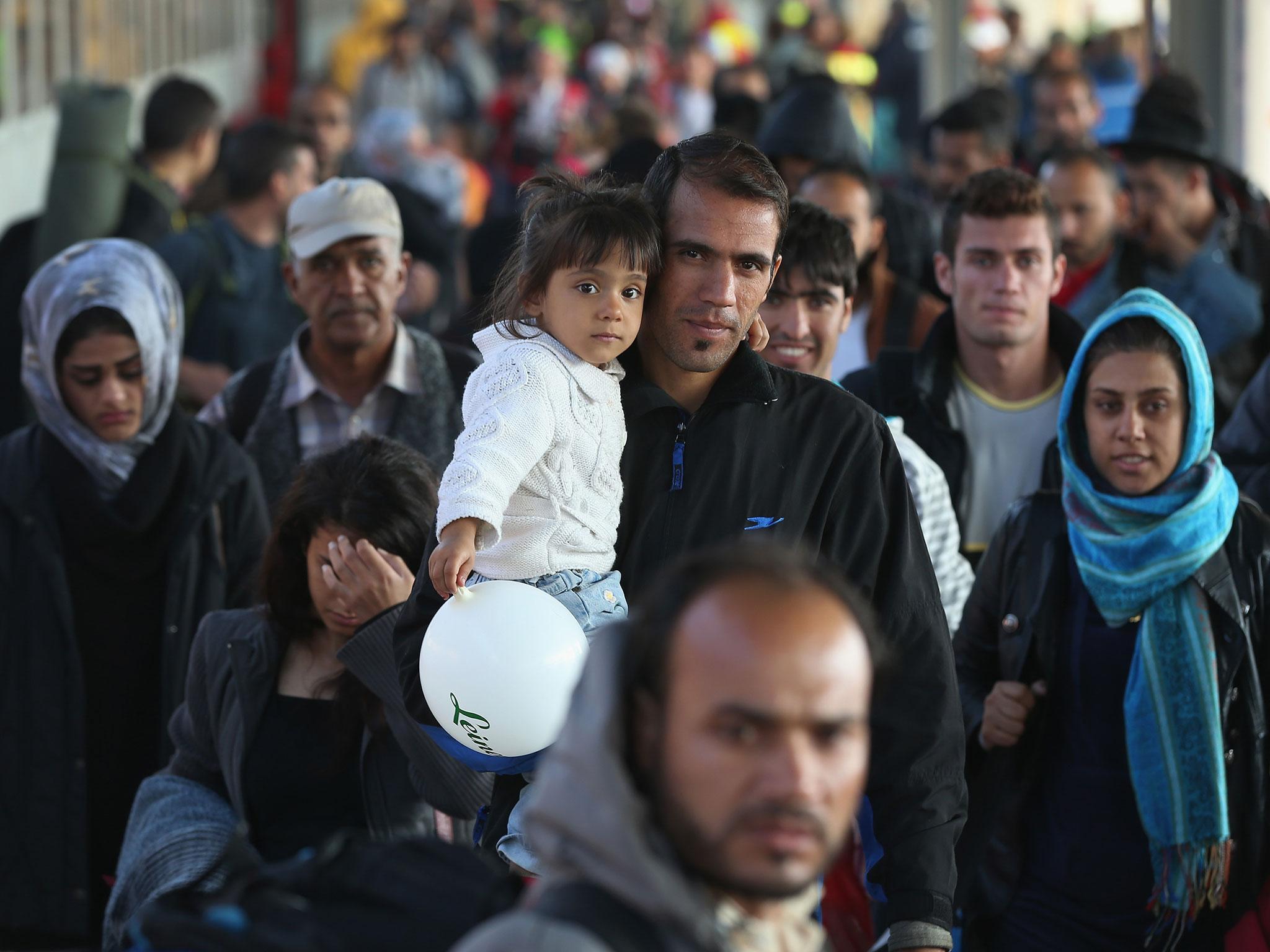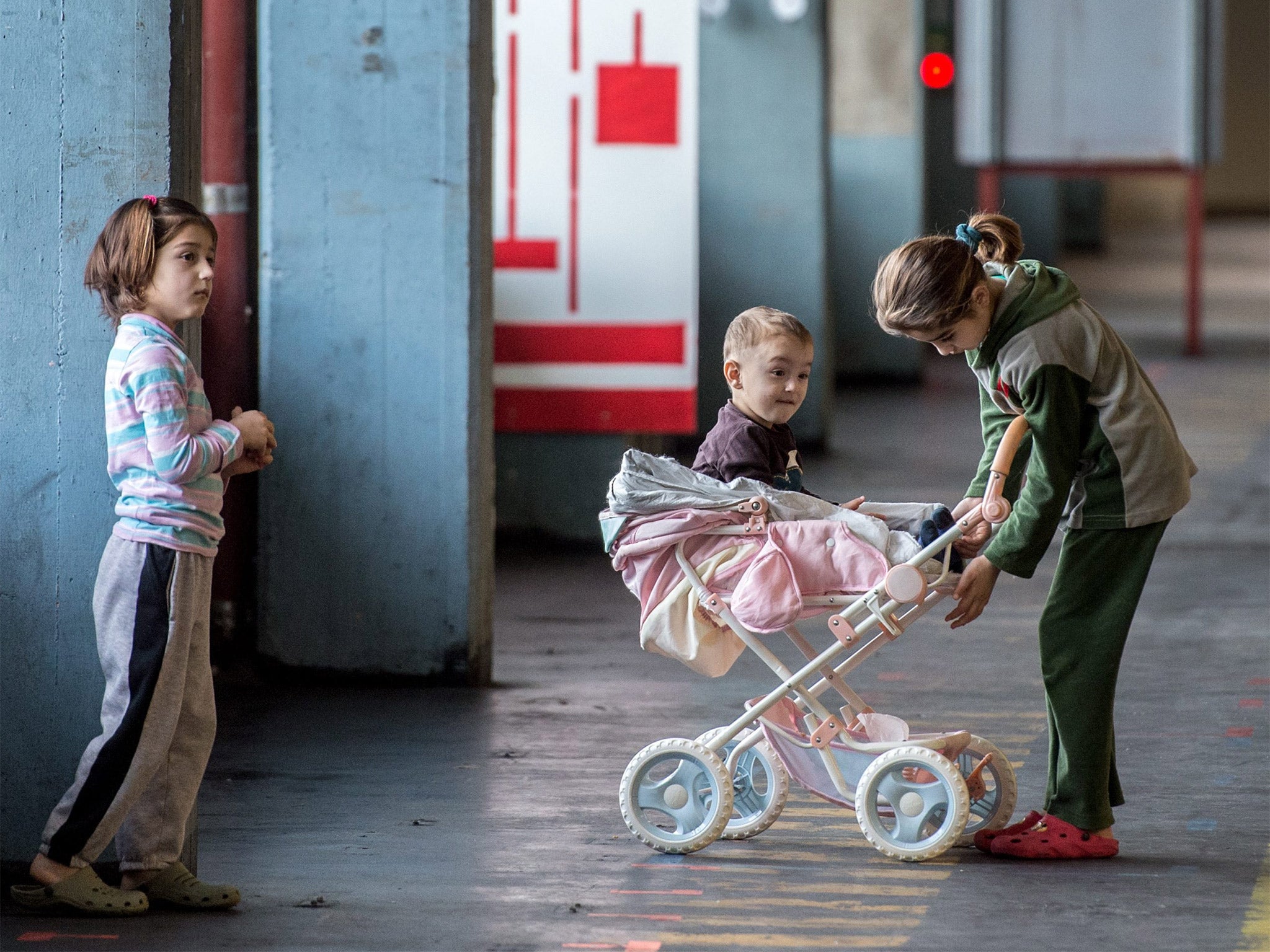Germany 'spent more than €20bn on refugees in 2016' as crisis outstrips state budgets
Government document seen by The Independent shows Berlin spent almost double budget

Your support helps us to tell the story
From reproductive rights to climate change to Big Tech, The Independent is on the ground when the story is developing. Whether it's investigating the financials of Elon Musk's pro-Trump PAC or producing our latest documentary, 'The A Word', which shines a light on the American women fighting for reproductive rights, we know how important it is to parse out the facts from the messaging.
At such a critical moment in US history, we need reporters on the ground. Your donation allows us to keep sending journalists to speak to both sides of the story.
The Independent is trusted by Americans across the entire political spectrum. And unlike many other quality news outlets, we choose not to lock Americans out of our reporting and analysis with paywalls. We believe quality journalism should be available to everyone, paid for by those who can afford it.
Your support makes all the difference.German states spent more than €20bn (£17.5bn) on refugees in 2016, government figures have indicated as Angela Merkel continues to come under pressure for her policy on migration.
Statistics seen by The Independent for the states of Bavaria, Schleswig-Holstein, Hesse and Berlin show that the cost of housing and integrating asylum seekers has far outstripped official predictions.
The Bundestag’s statistics service has listed a total spend of over €7bn (£6bn) for those four states alone in 2016, meaning the nationwide figure is likely to be far higher.
Johannes Singhammer, Vice President of the German parliament, told Die Welt: “[The figures] show that if the costs are added up for all federal states, around €23bn (£20bn) has probably been spent on migrants and refugees in 2016.”
The four states recorded have taken around a third of asylum seekers currently living in Germany, where more than a million have arrived since the start of the refugee crisis in 2015.
Berlin set aside €685m (£600m) for accommodation, unaccompanied minors, integration programmes, healthcare, language lessons and other projects but spent around €1.3bn (£1.1bn) in total – almost double the budget.
The state of Bavaria spent €3.3bn (£2.9bn), Hesse €1.6bn (£1.4bn) and Schleswig-Holstein €783.7m (£685.9m).
A spokesperson for the Bundestag’s statistics authority said a complete report would be made public when other states had calculated their spending.
An official survey conducted in December 2015 predicted that federal states would spend €17bn (£15bn) on dealing with the refugee crisis in the following year but with a huge backlog of asylum claims and difficulties with deportation, costs have spiralled beyond expectations.
Germany’s government has drawn up a new package of refugee funding for state authorities, as well as plunging money into new housing construction to prevent migrants sleeping in emergency accommodation like school gymnasiums and military barracks.
Despite the huge financial cost of the ongoing crisis, Germany’s federal government announced a budget surplus of €6.2bn (£5.4bn) last year.
The unprecedented number of refugees arriving in 2015 generated a huge backlog of claims that civil servants are still working to clear, with more than 430,000 cases outstanding at the start of 2017.
Thomas de Maizière, the German interior minister, said about 55,000 migrants returned home voluntarily, compared with 35,000 in 2015, while another 25,000 were forcibly deported.
Last month, the government announced a scheme to offer migrants financial incentives of up to €1,200 (£1,000) each to leave Germany and withdraw their application for protection, with a lower amount of €800 (£700) if they choose to depart after being refused asylum.
Mr de Maizière said StarthilfePlus was intended for those with “very poor chances of success” under the country’s asylum laws.
“I appeal to understanding and reason: For all those who have no prospect of staying in Germany, voluntarily departure represents a better way than deportation,” he added.
The flow of asylum seekers into the country has fallen dramatically since the implementation of the controversial EU-Turkey deal last March, which aimed to slow boat crossings to Greece by seeing anyone arriving detained under threat of deportation.
The number of new applications plummeted by more than 600,000 last year, standing at less than a third of those at the height of the crisis, when Ms Merkel opened Germany’s borders to Syrian refugees amid a series of boat disasters in the Mediterranean and Aegean seas.

Her policy sparked the arrival of more than a million asylum seekers in Germany, many of whom are still housed in temporary accommodation while awaiting a government decision.
Anti-immigration and far-right groups have criticised the decision, blaming the Chancellor for a series of Isis-inspired terror attacks carried out by migrants in Germany last year, including the Berlin Christmas market massacre.
The atrocities and increasing concern over migration have driven surging support for the populist Alternative for Germany (AfD) party, which is expected to enter the national parliament (Bundestag) for the first time as Ms Merkel battles for a fourth term in September’s election.
There was fresh scrutiny this week after Germany’s federal prosecutor charged three suspected Isis members with planning a terror attack in Düsseldorf.
Officials said the two of the Syrian men, aged between 25 and 27, investigated smuggling routes to Europe for jihadis in 2014, sending several refugees as tests before journeying along the migrant route themselves in 2015.
They allegedly drew the third suspect into the plot and worked with an Isis bomb maker already deployed to Germany by commanders, planning to detonate two suicide bombs in Düsseldorf’s popular Old Town before other militants massacred as many passers-by with guns as possible.
The plan was thwarted after one of the conspirators turned himself into French authorities in February last year.
A man injured seven people with an axe in a rampage at Düsseldorf’s main railway station on Thursday but police said there was no indication of a link to terrorism and described the 36-year-old suspect as mentally ill.
Join our commenting forum
Join thought-provoking conversations, follow other Independent readers and see their replies
Comments